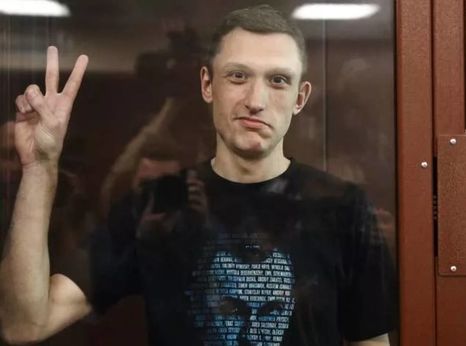Activist jailed for peaceful protest

On 5 September 2019, peaceful protester Konstantin Kotov was convicted of repeated participation in “unsanctioned” protest rallies, under Article 212.1 of the Russian Criminal Code, and sentenced to four years in prison. Unusually for Russia, his trial at Tverskoy District Court in Moscow lasted less than a day. All his protest actions were peaceful, and most of them concerned politically motivated prosecution of other activists. Konstantin Kotov has never committed, called for, or condoned any violence. During his trial, the judge refused to consider whether Konstantin Kotov’s actions constituted, or amounted to, any serious harm to others, and declined to hear the testimony of most witnesses for the defence or watch available video footage of Konstantin Kotov’s purported “crime”. On 14 October, Moscow City Court upheld Konstantin Kotov’s conviction and sentence.
On 27 January 2020, the Constitutional Court of Russia ruled that Konstantin Kotov’s case should be reconsidered. The Constitutional Court referred to another case in 2017, where it had ruled that courts should not hand down custodial sentences under Article 212.1 unless the defendant’s actions resulted in violence or public harm. However, it did not find Article 212.1 itself unconstitutional.
Konstantin Kotov’s case was then reviewed by Moscow City Court, which, on 20 April, upheld his conviction and reduced his prison sentence to a year-and-a-half. Konstantin Kotov’s lawyers are preparing his appeal against this decision.
Article 212.1 was introduced in 2014, alongside other legislation intended to restrict further the rights to freedom of expression, peaceful assembly and association in Russia. Konstantin Kotov is the third person who has been tried and convicted under this article. The other two are Ildar Dadin and Andrey Borovikov.
Unless Konstantin Kotov’s conviction is quashed (like Ildar Dadin’s in 2017) and if his custodial sentence remains in place, this will set a new dangerous precedent of an activist serving a prison term for merely participating in peaceful protest, and may lead to prosecution and imprisonment of numerous other individuals as well as a chilling effect on the right to freedom of peaceful assembly in Russia.